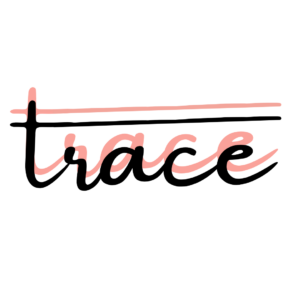Popular Fiction in Translation: An International Conference
10-11-12 September 2025 | Ghent, Belgium (on-site conference)
Abstract submission has been closed.
Our programme is available here.
Keynote speakers: Hélène Buzelin (Université de Montréal) & Ting Guo (The University of Liverpool)
A quick look at UNESCO’s Index Translationum shows that authors of popular fiction are among the most translated of all times and all languages—from British crime writer Agatha Christie and the author of French adventure novels Jules Verne to “the Queen of Romance” Barbara Cartland and bestselling multi-talent Stephen King. The prominence of such writers in the Index Translationum shows the intense transnational circulation of popular fiction, ever since it emerged in the late eighteenth century. Throughout this period, interlingual translations have often gone hand in hand with intermedial adaptations, from feuilleton to novel to movie to videogame to merchandising.
Despite the obvious importance of translations for the international circulation and success of popular fiction, the history, institutions, agents, and discursive strategies of popular fiction in translation remain underexplored. While popular culture has become an established object of enquiry in cultural, literary, and media studies, scholars such as Bianchi & Zanettin (2018), Carter (2018), and Buzelin (2022) have recently pointed to translation studies’ tenacious preference for literary texts that are considered highbrow. This lack of attention to popular genres in literary translation studies, and to processes of translation in popular fiction studies, has been criticized by Hélène Buzelin, who advocates for “a more inclusive sociology of translation.”
The Belgian research groups TRACE (Translation and Culture) and CLIV (Centre for Literature in Translation/Centrum voor literatuur in vertaling) aim to contribute to such an inclusive approach to translated literature and culture. With an international conference entitled Popular Fiction in Translation, both research groups seek to bring together scholars in translation studies, literary studies, cultural studies, and other related fields that study the circulation of popular fiction across borders and languages from the 19th century to the present day. The genres gathered under the umbrella of “popular fiction” or “genre fiction” are multifarious and continuously metamorphosing and blending. We therefore encourage contributions on a wide array of popular genres and practices, comprising historical novels, crime fiction, romance, westerns, horror, fantasy, science fiction, chicklit, and many more.
The organizing and scientific committee especially welcomes proposals for papers on topics including (but not limited to):
- the institutions, actors, and agents of popular fiction in translation, e.g. translation policies of publishing houses; the perspectives and working conditions of translators of popular fiction; practices of “fanslation” and “fansubbing” and group translation in popular culture; the role of AI in popular translation industries.
- the history of popular fiction in translation, e.g. the importance of translations to genre history; historical translators and translators’ archives; cultural histories of popular fiction in translation; culture-specific items (CSI) in translated popular fiction.
- the media of popular fiction in translation, e.g. the interplay between translation and adaptation in popular culture; media history (including histories of popular novels, installments, movies, TV series, streaming platforms and their translations); audiovisual translation and subtitling.
- narratological approaches to popular fiction in translation, e.g. the impact of translation on characterization, narrative space, or narrative structure; translation from the perspective of cognitive narratology, rhetorical narratology, and other subfields in the theory of narrative.
- popular fiction and worldviews in translation, e.g. translation from the perspective of ideology critique; feminist, queer, post/decolonial approaches to popular fiction in translation.
Submission guidelines
- Please provide an abstract of max. 2500 characters (including references), a provisional title, and a short bionote (max. 1000 characters) before 15 January 2025. [call closed]
- All presentations will be in English, while the research presented can focus on any geographical or linguistic context.
- Online presentations will not be accommodated.
- Submissions welcome for:
– individual presentations (20 min.)
– thematic panels (3 participants, 20 min. each) - You will receive a notification of acceptance by 15 February 2025.
- Participation in the conference will imply a registration fee, with a special discount for PhD students.
References
- Baldo, M., Evans, J., & Guo, T. (2023). Introduction of the special issue on ‘Translating the queer popular’. Perspectives, 31(2), 165-171.
- Bianchi, D., & Zanettin, F. (2018). ‘Under surveillance’. An introduction to popular fiction in translation. Perspectives, 26(6), 793-808. https://doi.org/10.1080/0907676X.2018.1510017
- Bianchi, D., & D’Arcangelo, A. (2015). Translating history or romance? Historical romantic fiction and its translation in a globalised market. Linguistics and literature studies, 3(5), 248-253.
- Buzelin, H. (2022). What ever happened to the belles infidèles?: Elements for a more inclusive sociology of literary translation. Translation in society, 1(2), 224-250. https://doi.org/10.1075/tris.22020.buz
- Campbell, I. (Ed.) (2021). Science fiction in translation: Perspectives on the global theory and practice of translation. Palgrave Macmillan.
- Carter, E. (2018). Translating popular fiction. In S.-A. Harding & O. Carbonell Cortés (Eds.), The Routledge handbook of translation and culture (pp. 431-444). Routledge. https://doi.org/10.4324/9781315670898
- Gelder, K. (2020). Adapting bestsellers: Fantasy, franchise and the afterlife of storyworlds. Cambridge University Press. https://doi.org/10.1017/9781108589604
- Letourneux, M. (2017). Fictions à la chaîne : Littérature sérielle et culture médiatique. Seuil.
- McCaw, N. (2011). Adapting detective fiction: Crime, Englishness and the TV detectives. Bloomsbury Publishing.
- Piipponen, M., Mäntymäki, H., & Rodi-Risberg, M. (2020). Transnational crime fiction: Mobility, borders and detection. Springer International Publishing. https://books.google.be/books?id=8aOVzQEACAAJ
- Seago, K. (2014). Introduction and overview: crime (fiction) in translation. The journal of specialised translation, July 2014(22), 2 – 14.
- Woodstein, B. J. (2022). Translation and genre. Cambridge University Press. https://doi.org/10.1017/9781108923255


